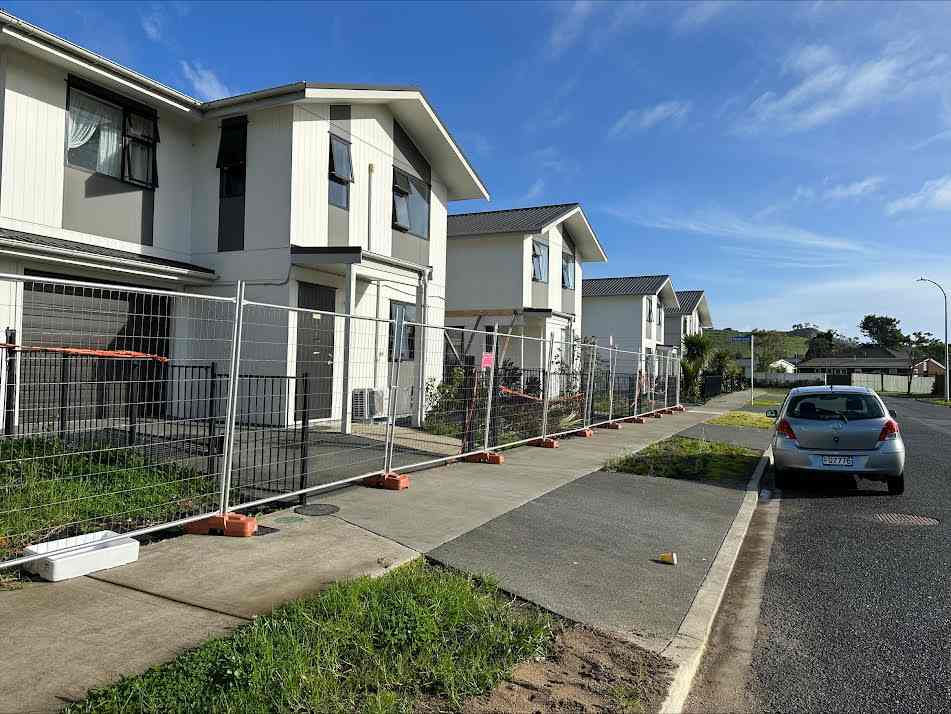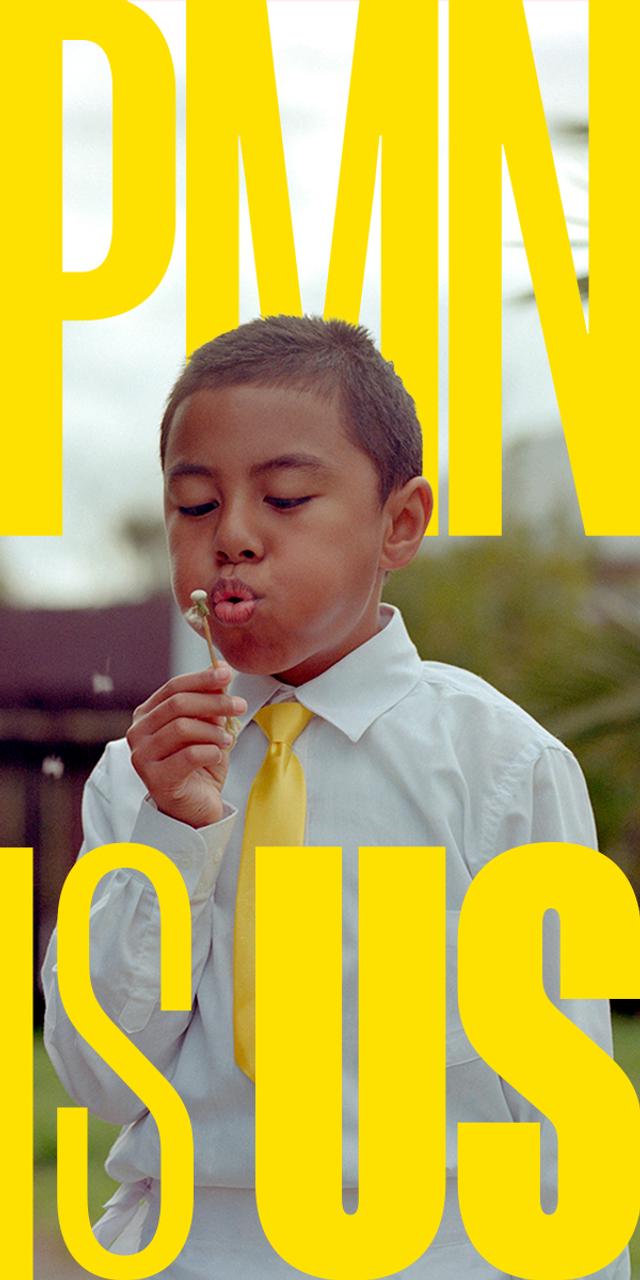

‘We want to go home’: One family's struggle to return to their flood-damaged state house
Having her home flooded was only the start of a four month ordeal to secure safe and suitable housing for Jardina's family of six.


Developing nations face increasing financial strain over China loans, new report reveals



Super-council plan for Porirua: Pacific leaders weigh in on referendum

Developing nations face increasing financial strain over China loans, new report reveals


After we leave the motorway, Kāinga Ora houses framed with slippery scaffolding on Bader Drive in Māngere welcome us.
We’ve farewelled the worst of the rain traffic with a sigh of relief. Luckily it’s the school holidays and there’s no after-school rush.
Weather beaten banners stamped Māngere Development and slogans like: “We’re helping you on your homebuyer journey” hang forlornly along fences, while some that have been ripped off by the wind are curled up in the unmowed berms, forgotten.
We turn the corner into Ventura Street. The downpour from that morning has formed puddles all along the edge of the footpath. From the outside, the house looks okay - its wooden fence and black gate still intact. In comparison, a home a few doors down has been lifted from its foundations by the recent floodings and is now held upright by large concrete supports.
As we step onto the KO property, a glint of yellow on the window pane catches my eye. An Auckland Council yellow sticker.
The curtains are drawn and the stale odour of damp carpet hangs in the clammy air, while cheeky giggling and toddler talk reverberate from upstairs.
We’ve arrived to meet Jardina.
The wait for repairs begins
We first met Jardina in late April, about three weeks after she was served an eviction notice from Kainga Ora (KO). At the time of our interview, the house had not received any repairs since January.
“At first the repairs were gonna get done. We were told [by KO] ‘yeah it might take a while - but we can just work around you. It’s safe for you to return home’.”
Meanwhile, Auckland Council had informed Jardina it was not safe and yellow stickered the house.
In her living room, family pictures hung on the wall while a fluffy orange rug tried to disguise the carpetless grey concrete underneath. Her four children sat together on one of the couches she had bought through WINZ after the floods; while the older two held their younger siblings with extra care.
They - and their mother - appeared resilient. If you had not been looking that carefully, you wouldn’t have guessed what the family had endured following the Auckland Anniversary floods.
For Jardina’s oldest, who’s 8-years-old, the yellow stickered house has been home for most of her life.
“This home is their first family home - I don’t want to leave just because it makes someone's job easier.”
Friday, 27 January, 2023
Jardina and her family’s home of five years was damaged in January. Metres from the Te Ararata stream, Jardina says the flooding happened really quickly.
“One minute, I was getting ready to go to netball and the next - the water was just outside.”
The entire downstairs was affected and their furniture and belongings ruined.
Jardina and her partner did whatever they could to keep the water out “not knowing if it would do anything”, frantically pressing blankets against doors and lifting couches on top of each other to stop them from getting wet. But it was already too late.
“In the first 48 hours we had no support. We didn’t know what to do. Our house was the only one that still had power upstairs, so we kept it on. But we didn’t know it was dangerous.”
In the days following the floods, Jardina managed to organise emergency housing for herself.
“I did speak to KO, but they couldn’t put us in accommodation straight away.”
And given staying with extended family was not an option, Jardina felt she had no choice but to do it herself, in order to keep her babies safe.
The reality of emergency living
Jardina soon realised the motel accommodation she’d acquired in Māngere was unlivable as a long term option for a family of six. She says there was no kitchen adequate enough to prepare meals; and the family bounced between sharing one room altogether, and being split between two rooms due to monthly motel contracts. And it wasn’t long before Jardina received complaints from the motel owners about the noise her children made.
“We stay [here at their Ventura St house] as long as we possibly can, till the kids are tired and then go back to the motel.”
The day-to-day reality of this has been exhausting for Jardina, who says during school term time it is particularly draining, as they travel back and forth all the time.
“I have four kids. Someone is bound to forget something. We wake up early, leave the motel and come and have breakfast here before starting our day.”

Ventura Street in Māngere. Many of the homes including Jardina's remain damaged and unlivable. Photo/ PMN News
The months that followed
From February to April, Jardina renewed monthly contracts with the emergency housing motel. It wasn’t until two weeks after she received the eviction notice, that KO stepped in and renewed her family's motel contract for three more months.
Angela Pearce, Kāinga Ora’s Regional Director for Counties Manukau, says KO have been in regular contact with Jardina since her home was severely damaged by the floods.
“We understand it has been a stressful few months for Jardina and her whanau, and we have worked hard to support them into a new warm and dry home,” Pearce says in a written response to our questions.
But Jardina, who has been trying to communicate with KO on a daily basis about her housing situation, feels like she is a problem being passed to a different person to deal with each time. Her frustrations only grew when her advocate from AAAP, Brooke Pao Stanley, said that families like Jardina’s - who were living in flood-damaged KO houses - were considered “not a priority” by the state housing agency.
Stanley, who was present to support Jardina during our interview, says it seems like “no one cares”.
“Kāinga Ora tenants are only meant to pay 25 per cent of their income towards rent,” Stanley says.
“But the motel contract rollover means that Jardina is paying $450 a week. It’s over double their normal rent. KO should have paid and organised the accommodation.”
On her daily visits to her Ventura Street home, Jardina can’t help but feel more and more deflated. New KO builds around the corner from Ventura Street continue, while the empty house next to her also receives renovations.
“I've just watched people come and go from the house. Why would that house be getting fixed when nobody lives there? Here's us right next door. We live here and we're still here! Why wouldn’t our house be a priority? ”
Jardina says the option of having her home repaired while her family stayed at the motel has not been offered.
“Everything that needed to be done could be done - the repairs could have been done while we were living at home.”
Clarifying the real damage
After the floods, KO say an initial assessment of the Ventura Street property took place, and reports showed it had suffered moderate damage.
“We gave some advice and information to Jardina about how she could clean-up some of the damage caused by floodwater so she and her whānau could remain there until the house was repaired,” says Pearce.
Jardina says this advice included being told to: get some gloves and a mask, and disinfect the house herself. It was Auckland Council not KO who then informed Jardina that there was blackwater in her home after the floods.
“I made a complaint because I wasn’t getting what I needed from KO.”
Jardina says KO staff wouldn’t provide checks on the electrical wiring, or a certified disinfection service which Auckland Council required to remove the yellow sticker from her house. Jardina says her and her partner even had to pull the flooded carpets up, days after the floods, while pleas to KO for assistance to remove the sharp carpet nail strips were ignored. Eventually one of Jardina’s children injured her feet on the nails, leading to an infection and a torn toenail.
To make matters worse, Auckland Council wouldn’t reassess her home until Jardina had sent a certificate proving she had professionally disinfected the house.
“I asked if I could hire cleaning professionals and then be reimbursed like my cousin did for his KO house. I was declined.”
Meanwhile, Jardina says KO officials told her: “If you can’t see the mould, it doesn’t exist.”
KO’s Angela Pearce says agency staff made inquiries to Auckland Council, who clarified that the yellow placard they had issued meant the house could not be occupied until a number of repairs had been done.
“We quickly got in contact with Jardina to advise her of this. She was understandably upset and frustrated by the changing information, however, in this situation it was unavoidable,” says Pearce.
“We assured Jardina she would be rehoused and that we would work closely with her to find her a suitable new home in a location that met her family’s needs.”
Offers of a new KO house
Pearce says that Jardina turned down two Kāinga Ora homes, one of which Jardina says was a three story apartment house.
“I said to my tenancy manager, would you live there? These houses are not safe for a family friendly [given the low balconies]. My boys will climb these fences and make a run for it.”
At the time of our interview, Jardina says her family wouldn't mind a temporary house until their home was fixed, but ultimately do not want to leave their Ventura home.
“We want to go back home”
It’s now been four months since the Auckland floods.
Jardina has recently accepted an offer of a new property in Mangere East. Her advocate Brooke Pao Stanley has remained in contact with her and says she accepted the home because she was exhausted living in emergency accommodation for so long.
Angela Pearce says KO will continue to support Jardina and her whanau as they settle into what Pearce calls “their new home”. Jardina has also received a full rent rebate from the time of the floods until she moved into new home, and Kāinga Ora has covered all costs associated with the move.
But for Jardina, the trauma of the last few months has left painful scars and her queries about returning to her old house remained unanswered.
“We just want to return home. We want to go back to normal. We want to wake up in the morning to have breakfast at home and drop the kids off to school. We just want to go back to normal.”

